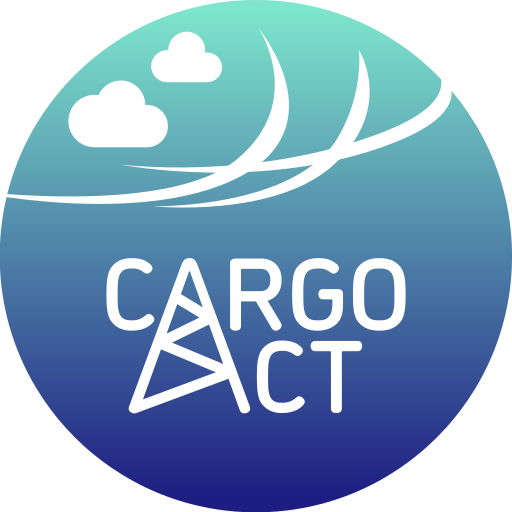Cooperation and AgReements enhancing Global interOperability for Aerosol, Cloud and Trace gas research infrastructures
The overarching goal of CARGO-ACT is to deliver a clear roadmap for sustainable global cooperation between key organisations around the globe to provide all users, in the scientific community and beyond, with the best possible services for accessing and using information from monitoring
climate- and air quality-relevant properties of aerosol, cloud and trace gases in the atmosphere.
The specific objectives of CARGO-ACT are to:
- develop sustainable partnerships and decision making processes with the relevant partner RIs;
- demonstrate the benefits of converging interoperability and standards to stakeholders and the global research community;
- establish the mechanisms for providing international access to distributed, global atmospheric RIs;
- develop a roadmap for upscaling towards an integrated global research infrastructure for aerosol, cloud and trace gases.
CARGO-ACT, involving the European Research Infrastructure on short-lived Aerosol, Cloud and Trace Gases (ACTRIS) and three agencies in the US, is a first step towards a global Research Infrastructure, with actions that will
develop, strengthen and maintain the position of ACTRIS within the international landscape.
Project structure – Work Packages

Convergence in Operations
WP1: Data interoperability (Lead NILU, co-lead ORNL)
WP2: Specification and documentation of common operation procedures and
data quality methodologies (Lead TROPOS, co-lead INOE)
WP3: Pilot implementations demonstrating service integration (Lead CNRS, co-lead CIRES)
Strategy and sustainability
WP4: Strategy for coordinating governance, agreements and aligning global objectives (Lead CNR, co-lead NASA)
WP5: Strategy for enabling common access (Lead CNRS, co-lead PNNL)
WP6: Roadmap and strategic guidance for upscaling (Lead UHEL, co-lead PNNL)
